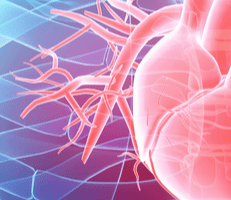Bradycardia

Phoenix Heart
Cardiologists located in Glendale, AZ & Goodyear, AZ
Bradycardia, a slower than normal heart rate, can signal an underlying condition and, in severe cases, may lead to frequent fainting or cardiac arrest. The cardiology specialists at Phoenix Heart evaluate your health, determine the cause of bradycardia, and recommend customized treatment to restore a normal heart rate when needed. If you have questions about your heart rate or want to schedule an evaluation, request an appointment online or call the nearest office today. Phoenix Heart has six convenient locations in Glendale, Goodyear, Scottsdale, Anthem, Black Canyon City, Cottonwood, and Avondale, Arizona.
Bradycardia Q&A
What is bradycardia?
Bradycardia occurs when your heart beats more slowly than a typical, which is less than 60 beats per minute.
A slow heart rate doesn’t necessarily mean you have a health problem. Young people, highly trained athletes, and those who exercise and stay in peak physical shape naturally have a lower heart rate. In those instances, their heart rate is healthy.
Bradycardia also tends to develop naturally with age, but as you age, it’s also more likely to signal heart disease.
What causes bradycardia?
Bradycardia is often caused by:
Electrical system malfunction
A small cluster of cells, the sinus node, sends out the electrical signals that activate each heartbeat, controlling how quickly the upper and lower chambers pump blood. You can develop bradycardia if the sinus node malfunctions.
Atrioventricular block (AV block)
If you have an AV block, the heart’s upper and lower chambers don’t communicate properly. Health conditions
Underlying health conditions that cause bradycardia include:
- Heart attack Coronary artery disease Inflamed heart tissues (myocarditis)
- Bacterial infections
- Heart muscle inflammation
- Underactive thyroid (hypothyroidism)
- Imbalanced electrolytes (potassium or calcium)
- Obstructive sleep apnea
- High blood pressure
- Congenital heart defects and some medications may slow your heart rate.
What are the symptoms of bradycardia?
It’s possible to have bradycardia and never experience symptoms. But a slow heartbeat also diminishes the amount of blood reaching your brain and organs.
As a result, you may experience:
- Low energy
- Fatigue
- Dizziness
- Fainting (syncope)
- Weakness
- Chest pain
- Confusion
- Memory problems
- Heart palpitations (fluttering in your chest)
- Shortness of breath
If you have any of these symptoms, don’t wait to schedule an evaluation at Phoenix Heart.
How is bradycardia treated?
Your provider evaluates your overall health and performs diagnostic tests. The primary test is an electrocardiogram (ECG), but you may also need to wear a Holter monitor for a few days or have a tilt table or stress test.
The best treatment depends on the cause of your bradycardia and the severity of your symptoms. In some cases, you may not need immediate treatment.
However, your provider may recommend lifestyle modifications, medications, or a pacemaker. It’s also essential to treat any underlying health conditions affecting your heartbeat. When needed, your Phoenix Heart provider can refer you to the appropriate specialist.
If you suspect you have bradycardia, call Phoenix Heart or request an appointment online today.
Cardiology Services
-
 Cardiovascular Labmore info
Cardiovascular Labmore info -
 Congestive Heart Failuremore info
Congestive Heart Failuremore info -
 Electrophysiologymore info
Electrophysiologymore info -
 Heart Attackmore info
Heart Attackmore info -
 Nuclear Medicinemore info
Nuclear Medicinemore info -
 Clinical Researchmore info
Clinical Researchmore info -
 Structural Heart Defectsmore info
Structural Heart Defectsmore info -
 Ultrasound Testingmore info
Ultrasound Testingmore info -
 Echocardiogrammore info
Echocardiogrammore info -
 Vein Centermore info
Vein Centermore info -
 Women’s Heart Healthmore info
Women’s Heart Healthmore info -
 High Blood Pressure/Hypertensionmore info
High Blood Pressure/Hypertensionmore info -
 High Cholesterolmore info
High Cholesterolmore info -
 Coronary Artery Diseasemore info
Coronary Artery Diseasemore info -
 Stress Testingmore info
Stress Testingmore info -
 Weight Lossmore info
Weight Lossmore info -
 Arrhythmiamore info
Arrhythmiamore info -
 Atrial Fibrillationmore info
Atrial Fibrillationmore info -
 Peripheral Vascular Disease (PVD)more info
Peripheral Vascular Disease (PVD)more info -
 Chest Pain/Anginamore info
Chest Pain/Anginamore info -
Lymphedema & Phlebolymphedemamore info
-
Compression Stockingsmore info
-
Diagnostic Testingmore info
-
Interventional Cardiologymore info
-
Peripheral Arterial Diseasemore info
-
Bradycardiamore info
-
Tachycardiamore info
-
Ventricular Fibrillationmore info
-
Weight Management with Enara Healthmore info




















